5 facts about the Nobel Literature Prize
For the first time in 70 years, the Nobel Literature Prize-awarding body has postponed the award
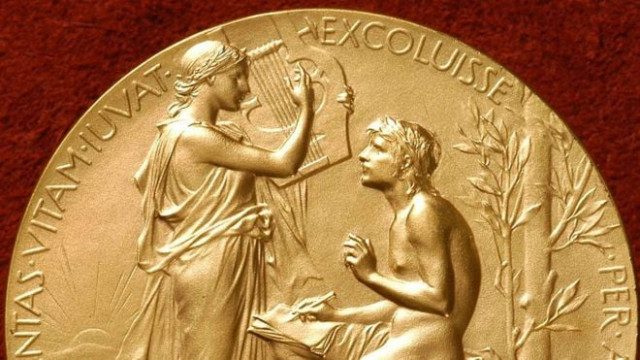
PHOTO: BBC
For the first time in 70 years the Nobel Literature Prize-awarding body, the Swedish Academy, has postponed the award, after a #MeToo scandal left it in ruins.
The venerable institution said in May that it needed time to undertake reforms and replace several members who resigned after disagreements over how to handle its close ties to a Frenchman accused of sexual assault.
Here are five things to know about the Nobel Literature Prize.
1. 350 nominations each year
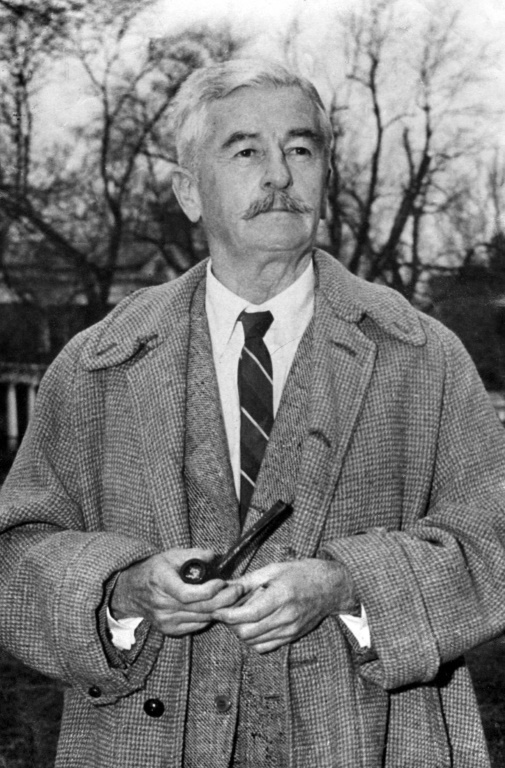 PHOTO: AFP
PHOTO: AFPIn his 1895 last will and testament, Swedish scientist and philanthropist Alfred Nobel tasked the Swedish Academy with awarding the Nobel Literature Prize each year.
Since 1901, four or five of its 18 members have been elected to serve on its Nobel Committee for a three-year term, designated to sort through the nominations and provide the rest of the Academy with a shortlist of possible winners.
2. Few women laureates
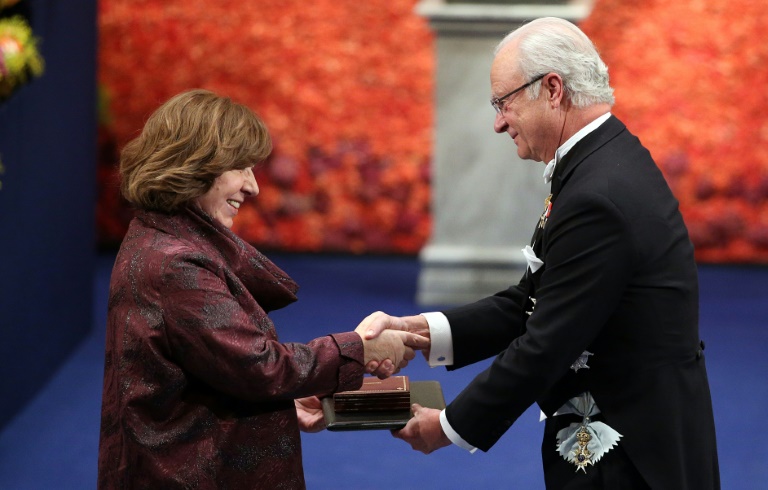 PHOTO: AFP
PHOTO: AFPOnly 14 of the total 114 laureates have been women since the prize was first awarded in 1901.
Swedish author Selma Lagerlof, known for folktales and legends about her country, was the first woman to win the award in 1909.
However the trend has been improving: half of the women who have won the prize have done so since 1993.
The Swedish Academy's first woman permanent secretary Sara Danius, a 56-year-old literature scholar and author, resigned in April after the institution's failure to agree on how to deal with the aftermath of the sexual assault scandal.
3. Reserved and cancelled awards
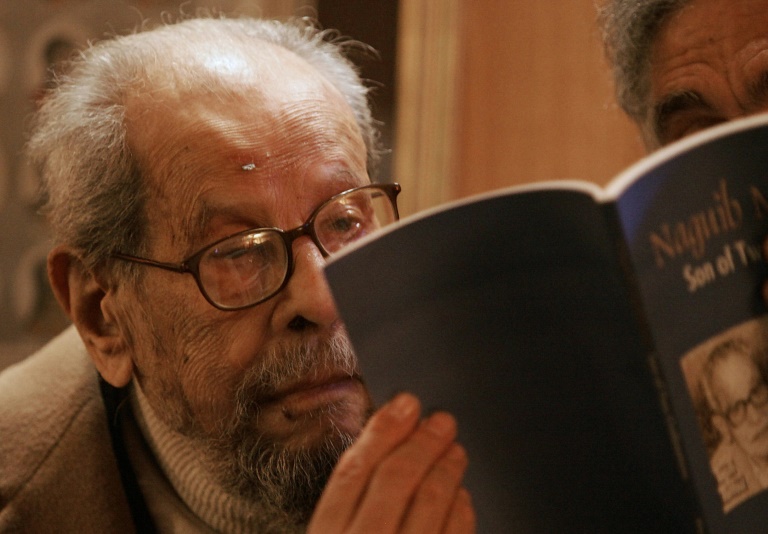 PHOTO: AFP
PHOTO: AFPThe Nobel Literature Prize was not awarded on seven occasions -- 1914, 1918, 1935, 1940, 1941, 1942, 1943 - as fewer prizes in general were given during World War I and II.
The Academy said it would announce two laureates next year, one for 2018 and another for 2019. It has also postponed the prize on seven occasions - 1915, 1919, 1925, 1926, 1927, 1936 and 1949 - because members couldn't agree on a laureate who met the criteria in Alfred Nobel's will.
The prizes for these years were given the following year instead.
4. Famous snubs
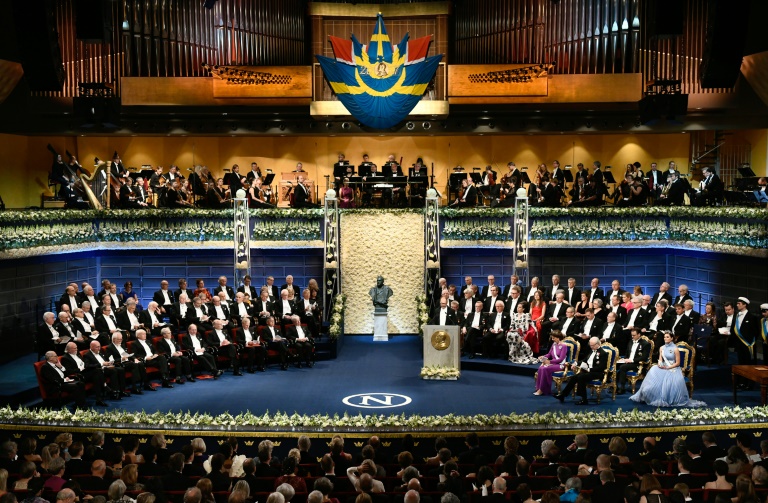 PHOTO: AFP
PHOTO: AFPNumerous acclaimed writers have been snubbed, perhaps most notably Russian novelist Leo Tolstoy, Norwegian playwright Henrik Ibsen and French author Emile Zola.
Alfred Nobel's will vaguely states that an author who has produced "the most outstanding work in an ideal direction" should win the prize.
According to resigning Academy member Kjell Espmark, this criteria, "characterised by its conservative idealism holding church, state and family sacred", meant the Academy of the time rejected the three authors for touching on morality issues.
5. France tops list of laureates
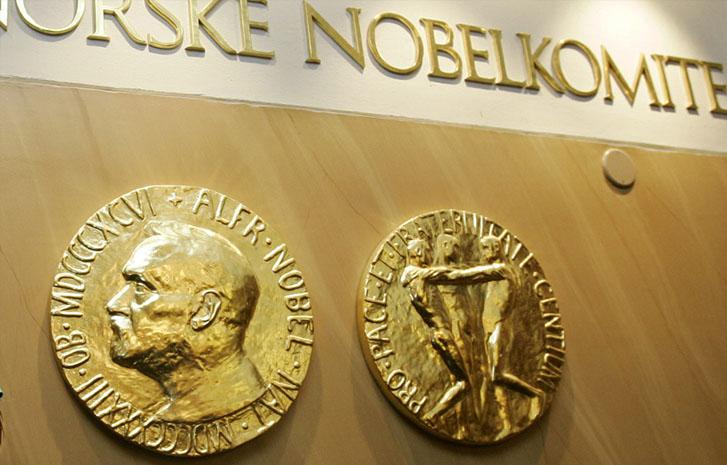 PHOTO: AFP
PHOTO: AFPThe Nobel Foundation keeps no statistics on laureates' nationalities, as they are not chosen based on their country and dual citizenships can make it tricky to keep track.
But according to AFP's tally, French nationals take the gold medal for the most Nobel Literature Prizes with 15 laureates, including the first one ever awarded, to Sully Prudhomme in 1901.
The United States and Britain tie for second with 12 laureates each.
Have something to add to the story? Share it in the comments below.



















COMMENTS
Comments are moderated and generally will be posted if they are on-topic and not abusive.
For more information, please see our Comments FAQ